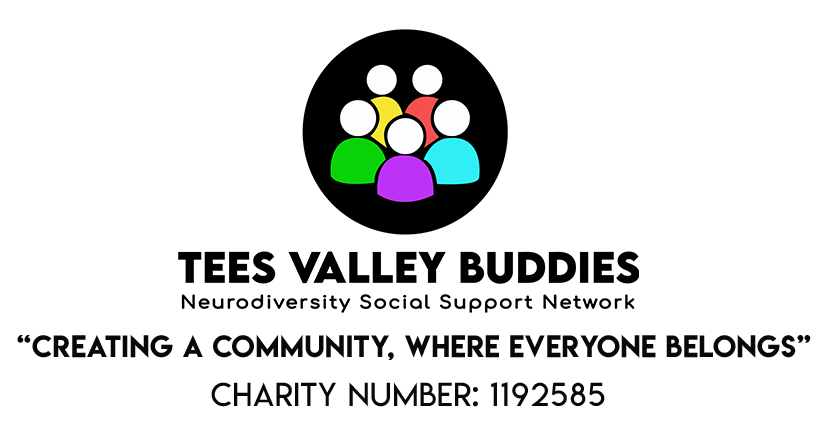Jaime’s Autistic Journey
This is my autism journey so far - two years on.
By Jaime Appleby- Tees Valley Buddies
I was diagnosed as autistic in January 2020, aged 32, and since then I have been on a discovery journey. The first year after I was diagnosed, I was still getting my head around it all. I had very mixed emotions. I was happy and relieved that, after many years, I finally found out who I really was. It meant I also had the proof to use when others didn’t believe me, which I feel I have had to do, especially on the internet. I have been called fake and that I have made up my autism. I have had hate messages (which has knocked my confidence and made me feel invisible) when all I want is to help everyone to learn about autism and what it is like to be autistic.
Not long after I was diagnosed, the whole of the UK went into lockdown and all services were at a halt. I couldn’t be around other autistic people when I needed support the most, and I couldn’t see the light at the end of the tunnel. I felt isolated and alone, even if I did have a handful of people (mainly neurotypicals) for support. All I wanted is to know I wasn’t alone in this new world of mine.
In October 2020, I became a part of a new charity called Tees Valley Buddies, and things started to look better, even if we were in and out of lockdown. There were always things to do which is what helped me the most. I have had many roles within the charity, but the one that seems to suit my strengths better is to be a part of the charity website and social peer support groups. Coming up with new ideas is always fun and very easy for me to do as I am very creative. I really like helping other people. I just don't want any autistic or neurodivergent person to go through what I have experienced in my life, which I know can be a very dark and lonely place.
In Summer 2021, we were able to start the groups again, and the one I have really enjoyed the most is the Neurokin Walk and Talk, which happens almost every week. We now have many members who come on a regular basis and it has become part of their routine. Many of them rarely go out of their homes and this has helped them to overcome some of their difficulties. It is nice to see how they have grown as people and have come out of their shells. I have made more autistic and neurodiverse friends because of these groups and I hope to make more. Talking to other autistic people has helped me to learn about my true self, and why I do things the way I do and why I do them, which in an autistic world, are normal and acceptable. I have learnt coping techniques from other autistic people, which has helped me a lot, and I plan to share these techniques with other neurodiverse people throughout the world and not just in Tees Valley.
The past two years have been a very emotional and bumpy ride, but to have other autistic and neurodiverse people by my side has helped a lot. I know not many newly diagnosed autistic people are lucky enough to get support or even just to have a few people to talk to. Support is highly needed within the autistic and neurodiverse community. I have been made very welcome by many autistic and neurodiverse people and I hope to do the same back.
Since I found out I am autistic, I have learnt to see my diagnosis as a positive part of my life and a part of who I really am. I have short term memory issues which have had a big impact on my life so far and I have now learnt how to manage them and have put in place strategies that have helped me to cope. I have also learnt about my stims that can happen without my knowledge or awareness and have now bought fidget toys which have helped me in a huge capacity. Understanding my needs and abilities has given me the confidence to embrace my new diagnosis which I know is very important for an autistic/neurodiverse person of any age.
My top tips:
- Be honest to yourself. If you are struggling, then please talk to someone: a family member, friend, another autistic or neurodiverse person, or get in touch with a local charity.
- Do at least one self care thing every day, for example, you could wash your hair, have a bath, play a computer game, write things down, read a book, or look up something about your special interest.
- Use a diary to note down important information like appointments and dates (even if it’s on your phone or on paper, whatever format works best for you).
- Try planning a routine that is personal to you and your needs. This can be a daily or weekly routine. Make one that is suitable for you.
- Get out and about. Being outside can be good for your mental health and fitness. Meet up with family/friends for a coffee or even just by yourself.
